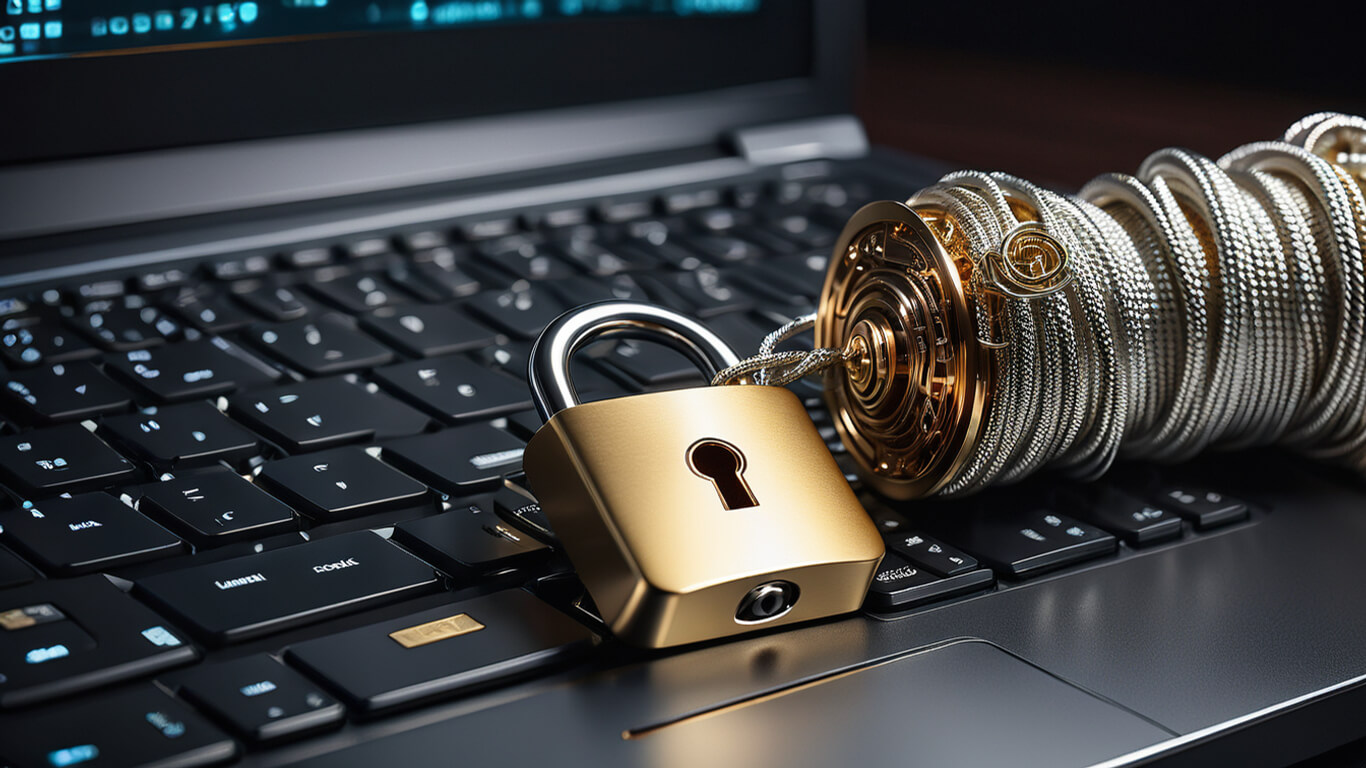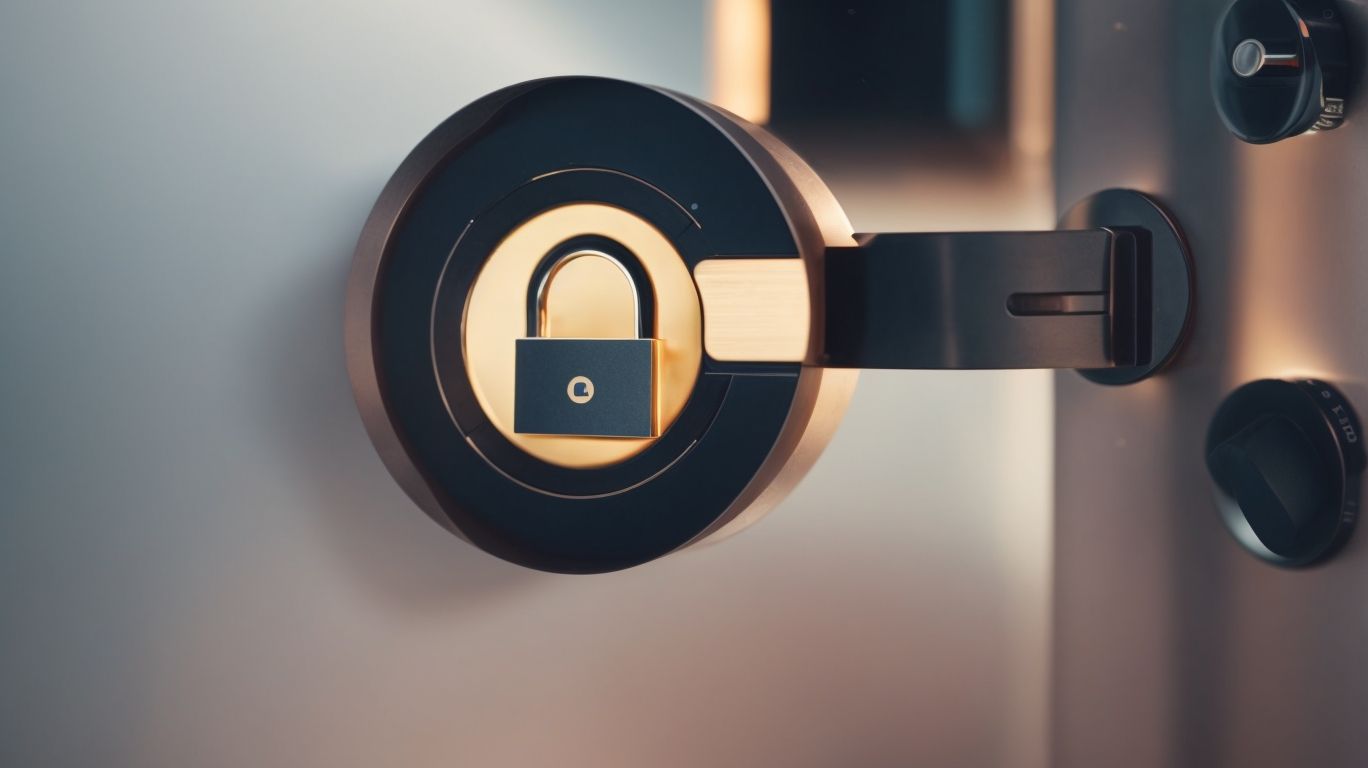In today’s digital age, our online presence holds a significant amount of valuable information and memories. From social media accounts to financial information, our digital legacy is vast and important to protect.
This article will explore the concept of a digital legacy, why it’s crucial to safeguard it, and what types of online assets require protection. We will also discuss the risks to your digital legacy and provide practical tips on how you can secure your digital footprint for the future.
Table of Contents
Key Takeaways:
Protect your digital legacy by using strong passwords and enabling two-factor authentication to prevent identity theft and cybercrime. Regularly update security software and back up your data to avoid loss of access to important online assets. Consider creating a digital estate plan and sharing passwords with trusted individuals or using a password manager for added protection.
What Is A Digital Legacy?
A digital legacy refers to the online presence and assets that a person leaves behind after their passing, encompassing everything from social media accounts to financial documents and personal data.
As individuals increasingly engage in digital activities, it’s essential to consider how these digital footprints will be managed posthumously. Creating a comprehensive digital legacy plan is becoming a crucial element of estate planning to ensure that one’s online accounts and data are handled according to their wishes. This extends beyond traditional assets to include email accounts, cloud storage, subscriptions, and even cryptocurrencies. With the vast array of online platforms and data storage options available today, the complexity of managing a digital legacy continues to grow.
Why Is It Important To Protect Your Digital Legacy?
Protecting your digital legacy is crucial to ensure that your online accounts, personal data, and digital presence are managed according to your wishes and legal requirements, often overseen by an assigned executor.
One of the key aspects of safeguarding your digital legacy is understanding the legal considerations that come into play. In terms of digital assets, such as social media accounts, emails, and online banking, it is essential to have a plan in place to protect and transfer these assets in the event of your passing. This is where the role of an executor becomes crucial, as they are responsible for carrying out your wishes regarding your digital presence.
Managing and protecting your online accounts and personal data is not only about preserving your memories and digital footprint but also about ensuring that sensitive information is handled securely. With the increasing risks of identity theft and data breaches, taking proactive measures to secure your online accounts through strong passwords, two-factor authentication, and regular security updates is paramount.
What Are The Types Of Online Assets That Need Protection?
Various types of online assets require protection, including social media accounts, email accounts, financial documents, digital photos, videos, personal and business files, to safeguard your digital estate for your family and loved ones.
Protecting social media accounts involves securing personal information, preventing unauthorized access, and managing permissions to avoid identity theft or fraudulent activities.
Safeguarding email accounts is crucial as they often contain sensitive data, personal conversations, and login credentials that could be exploited by hackers or unauthorized individuals.
Securing financial records ensures that important financial information, transaction histories, and account details remain confidential and protected from cyber threats.
Social Media Accounts
Social media accounts form a significant part of one’s digital legacy, often requiring password management and considerations for preserving one’s digital presence.
Securing your social media accounts is vital as they contain personal information, memories, and interactions that reflect your life. Effective password management is essential to protect these accounts from unauthorized access. Implementing two-factor authentication adds an extra layer of security.
Planning for your digital presence after death is crucial. It’s advisable to appoint a trusted individual to handle your accounts or utilize services like the Facebook Legacy Contact feature. Consider creating a digital will outlining how you wish your profiles to be managed posthumously.
Email Accounts
Email accounts hold crucial personal and professional information, necessitating attention in digital estate planning and guidance for the executor overseeing their management.
Ensuring the protection and accessibility of email accounts posthumously has become paramount in the digital age. Cybersecurity threats are ever-evolving, making it vital to safeguard these accounts to prevent unauthorized access or misuse. For estate planning, incorporating details on how to access and manage these accounts is essential for a smooth transition of assets and information. The executor, who is entrusted with carrying out the deceased’s wishes, plays a pivotal role in organizing and ensuring the proper handling of email accounts as part of the overall estate settlement process.
Online Banking and Financial Accounts
Online banking and financial accounts require heightened security measures to protect sensitive financial data and ensure seamless management for designated individuals in the event of the account holder’s passing.
With the increasing prevalence of online transactions and banking, cyber threats targeting financial information have become a major concern for individuals and institutions alike. Implementing robust security practices is crucial to safeguard against unauthorized access and potential data breaches.
To ensure safe transfer of financial information to trusted parties, it is essential to utilize secure communication channels, such as encrypted emails or secure messaging platforms. Always verify the authenticity of the recipient’s identity before sharing any sensitive data, especially account details or passwords, to prevent falling victim to phishing scams or identity theft.
Digital Photos and Videos
Preserving digital photos and videos is essential for maintaining visual memories and personal narratives within one’s digital legacy, requiring secure storage and access protocols.
One must acknowledge that digital content has become an integral part of modern life, documenting cherished moments and significant events. Ensuring the preservation of these files is crucial to safeguarding one’s legacy for future generations. Utilizing reliable storage solutions such as cloud services or external hard drives can help protect these valuable assets from loss or corruption. Implementing a systematic organization system and regular backups can further enhance the security and accessibility of multimedia files. It is important to consider the long-term implications of managing digital photos and videos within the broader context of one’s digital estate.
Digital Music and Movies
Digital music and movie collections constitute valuable digital assets that should be protected and managed to preserve one’s media library and personal preferences over time.
Ensuring the safety and accessibility of these collections is crucial in the face of potential data loss or corruption. Implementing reliable backup solutions is a key step in safeguarding your music and movie files. Cloud storage services offer convenient options for securely storing and syncing multimedia content across devices. Organizing files into structured folders and utilizing metadata tags can streamline access and enhance searchability.
Personal and Business Documents
Personal and business documents hold critical information that contributes to one’s legacy and should be protected and managed to ensure their proper handling and dissemination.
Safeguarding these documents is essential for maintaining privacy, complying with legal requirements, and protecting intellectual property.
Legacy planning considerations
entail assessing how these records will be passed down to future generations or beneficiaries. Managing and preserving textual records involves organizing them systematically, digitizing where necessary, and establishing secure storage practices. Whether it’s wills, contracts, or client information, the integrity of these materials plays a vital role in safeguarding personal and business interests.
What Are The Risks To Your Digital Legacy?
Your digital legacy faces various risks such as identity theft, data breaches, cybercrime, and the potential loss of access to critical online accounts and information.
Identity theft poses a significant threat as cybercriminals continually develop sophisticated methods to steal personal information.
Data breaches expose your sensitive data, leaving you vulnerable to exploitation and manipulation.
Cyber threats, including malware, phishing attacks, and ransomware, can compromise your online security and financial well-being.
The loss of access to crucial accounts can cause disruptions in managing finances, communications, and digital assets.
To safeguard your digital legacy, implementing robust security measures, such as complex passwords, two-factor authentication, and regular software updates, is vital.
Identity Theft
Identity theft poses a significant risk to your digital legacy, potentially compromising your online accounts, personal information, and digital presence.
Identity theft can occur through various means, such as phishing scams, data breaches, or malicious software. Once fraudsters gain access to your sensitive information, they can wreak havoc on your digital life, from unauthorized financial transactions to impersonating you online.
Protecting yourself starts with safeguarding your personal data. Be cautious about sharing sensitive information online and regularly monitor your accounts for any suspicious activity. Consider using complex passwords or a reputable password manager, enabling two-factor authentication whenever possible, and staying updated on security best practices.
Data Breaches
Data breaches can expose your online accounts to unauthorized access and compromise the confidentiality of sensitive information stored within your digital estate.
When hackers gain entry into your accounts, they can tamper with personal data, financial details, or even valuable intellectual property. This violation of your privacy poses not only financial risks but also threatens your online reputation and personal security.
Implementing strong authentication methods such as multi-factor authentication (MFA) can add an extra layer of protection to your accounts, significantly reducing the likelihood of unauthorized access. Regularly updating passwords and utilizing secure, unique passwords for each account can also fortify your digital defenses against cyber threats.
Cybercrime
Cybercrime poses a threat to your digital assets, potentially leading to financial fraud, data theft, and unauthorized access to sensitive information contained within your online accounts.
One of the concerning issues related to cybercrime is its impact on your digital legacy, which encompasses not only your financial accounts but also personal data, photos, and communications stored online. This can result in irreversible damage, jeopardizing your privacy and security. To prevent such risks, individuals are advised to strengthen their cybersecurity measures by utilizing strong and unique passwords, enabling two-factor authentication, regularly updating software, and being cautious of phishing attempts that aim to extract sensitive data. It’s essential to monitor your accounts and credit reports for any suspicious activity, as early detection can mitigate potential financial losses and identity theft.
Loss of Access
The loss of access to critical online accounts can impede the management and distribution of your digital legacy, underscoring the importance of contingency planning and secure access protocols.
When individuals pass away or become incapacitated, the inability to retrieve important information from their online accounts can lead to financial, emotional, and legal complications for their loved ones.
Immediate action is often necessary to safeguard digital assets, preserve memories, and fulfill any outstanding obligations. Implementing a comprehensive record-keeping system, considering the utilization of password management tools, and designating a trusted individual to manage digital assets can offer invaluable support in such scenarios. It is crucial to regularly review and update access information to ensure continuity in the event of unforeseen circumstances.
How Can You Protect Your Digital Legacy?
Safeguarding your digital legacy involves employing security measures such as using strong passwords, enabling two-factor authentication, regularly updating security software, backing up data, creating a digital estate plan, sharing account information with trusted individuals, and considering password manager solutions.
Plus these essential steps, it is crucial to periodically review and update your privacy settings on various online platforms to control who can access your information. It is also advisable to designate a digital executor in your estate plan, someone who can manage your digital assets in accordance with your wishes after you pass away.
Encrypted cloud storage services provide secure ways to store important documents and photos, ensuring that they remain accessible to your designated beneficiaries. Regularly auditing your digital accounts, removing any unused or outdated ones, can also minimize the risk of unauthorized access to your information.
Use Strong Passwords
Employing strong, unique passwords for your online accounts is a fundamental step in enhancing the security of your digital legacy and preventing unauthorized access.
When creating passwords, consider using a mix of uppercase and lowercase letters, numbers, and special characters to increase their complexity. Avoid common phrases, birthdays, or easily guessable information. It’s also crucial to generate different passwords for each account to prevent a security breach in one compromising all others. Utilizing a password manager can greatly assist in securely storing and organizing your diverse passwords for easy access, ensuring a more robust defense against cyber threats.
Enable Two-Factor Authentication
Two-factor authentication adds an extra layer of security to your online accounts by requiring a secondary verification method, minimizing the risk of unauthorized access and enhancing digital legacy protection.
By combining something you know (like a password) with something you have (such as a smartphone or security key), two-factor authentication significantly reduces the chances of a cybercriminal gaining access to your sensitive information.
Implemented across a wide range of platforms including social media, email, banking websites, and more, two-factor authentication is a cornerstone in safeguarding personal data from potential breaches and identity theft.
This security measure plays a crucial role in strengthening overall online security and ensuring that your digital footprint remains secure for years to come.
Regularly Update Security Software
Regularly updating your security software helps safeguard your digital assets by patching vulnerabilities, enhancing protection against cyber threats, and ensuring the longevity of your digital estate.
One critical aspect of updating security software is the constant battle against the evolving tactics of cybercriminals. By staying up-to-date, you can stay one step ahead and minimize the potential risks posed by new security threats.
Updating security software plays a crucial role in vulnerability management. When vulnerabilities are left unaddressed, they act as open doors for malicious entities to exploit, potentially leading to data breaches or system compromises.
By regularly updating your security software, you not only protect your legacy but also contribute to a more secure digital environment for yourself and others. Taking proactive steps in maintaining security measures is paramount in today’s interconnected world.
Back Up Your Data
Regularly backing up your data is essential for preserving your digital assets and ensuring data integrity, offering redundancy in case of data loss or system failures within your digital estate.
Data backup practices play a crucial role in minimizing the potential risks associated with accidental deletions, cyber-attacks, hardware malfunctions, or natural disasters. Implementing a comprehensive backup strategy can help mitigate the impact of inevitable data mishaps, safeguarding your critical information and personal files. By exploring various storage solutions like external hard drives, cloud storage services, or network-attached storage (NAS) devices, you can enhance the resilience of your data backups. Creating an organized backup routine that includes regular backups, automated processes, and off-site backups can ensure data continuity and peace of mind.
Create a Digital Estate Plan
Developing a comprehensive digital estate plan allows you to outline your wishes regarding the management and distribution of your online accounts, digital assets, and personal data under legal guidance and executor oversight.
One of the key reasons to establish a digital estate plan is to ensure that your loved ones can access, manage, and secure your digital presence seamlessly in the event of your incapacity or passing. By including detailed instructions on how you want your social media profiles, email accounts, cryptocurrencies, and other online assets to be handled, you provide clarity and guidance during a challenging time.
Share Passwords and Account Information with Trusted Individuals
Sharing passwords and account information with trusted individuals enables seamless access to your digital assets, ensuring continuity in managing your online presence and securing your digital legacy.
When you entrust someone with your sensitive data, it is crucial to be selective in your choices. Opt for individuals who understand the importance of confidentiality and responsibility. Clearly communicate your expectations and the extent of the access provided. Consistent communication is key, ensuring that any changes or updates to the shared information are promptly shared to maintain effectiveness.
By carefully choosing designated individuals and implementing secure sharing practices, you can protect your digital presence and safeguard your valuable information for posterity.
Consider Using a Password Manager
Utilizing a password manager offers secure storage, encryption, and convenient access to your online account credentials, enhancing account security and simplifying password management for your digital legacy.
By using a password manager, you can generate complex, unique passwords for each of your accounts, reducing the risk of hacking and unauthorized access to your sensitive information. These tools often come with features like password strength analysis, syncing across devices for seamless access, and multi-factor authentication options for added security.
Password managers also help in auto-filling login details, saving you time and effort while ensuring you don’t have to remember multiple passwords. Some advanced password managers offer secure sharing options, allowing you to securely share passwords with trusted individuals or team members for collaborative purposes. https://www.youtube.com/embed/zeds7aHdwc8
Frequently Asked Questions
What is a digital legacy?
A digital legacy refers to the online assets and accounts that a person leaves behind after their passing. These can include social media profiles, email accounts, and online subscriptions.
Why is it important to protect your digital legacy?
Protecting your digital legacy is important because it ensures that your online accounts and assets are handled according to your wishes after you pass away. It also helps prevent identity theft and unauthorized access to sensitive information.
What are some security measures for protecting your digital legacy?
Some security measures for protecting your digital legacy include creating strong and unique passwords, enabling two-factor authentication, and regularly updating your security settings.
How can I ensure my digital legacy is handled according to my wishes?
One way to ensure your digital legacy is handled according to your wishes is to create a digital will or designate a digital executor who can access and manage your online accounts after your passing.
What should I do with my social media accounts when planning for my digital legacy?
When planning for your digital legacy, you should decide whether you want your social media accounts to be deleted or memorialized. You can also assign a trusted contact who can manage your account after your passing.
How often should I review and update my digital legacy security measures?
It is recommended to review and update your digital legacy security measures at least once a year, or whenever there are significant changes in your online accounts or personal information. This helps ensure your accounts are always protected.







